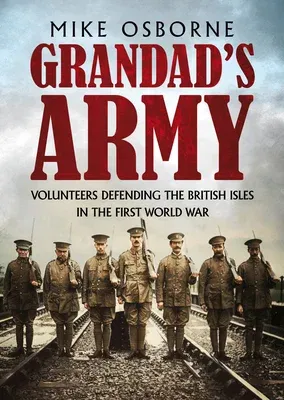In August 1914, on the outbreak of the First World War, there was
enormous pressure on men to enlist in Kitchener's New Armies,
supplementing the tiny regular army and Territorial Force. This pressure
was intense, and posters, the entreaties of local worthies, and an
apparently indiscriminate scattering of white feathers, all exacerbated
masculine sensitivity. We are all familiar, if only through BBC TV's
'Dad's Army', with the Home Guard of the Second World War.
Far less is known of their First World War equivalent: the Volunteer
Training Corps (VTC). Like their counter-parts in WW2, the VTC comprised
those who were too old, too young, too unfit or too indispensable to
serve in the regular forces. They fought for the right to be armed,
uniformed and trained; to be employed on meaningful duties; and at
first, to exist at all. This book explores the origins, development and
structure of the VTC, along with those who belonged to the many
supporting medical, transport, police and youth organisations who kept
the home fires burning or, in some cases, tried to put them out. The VTC
arose from the need of those men who were forced to stay at home to be
seen to be doing their bit. They saw the removal of the bulk of both the
regular army and the Territorial Force to the Western Front as their
opportunity to prepare to resist the expected German invasion of
Britain, and as a way of countering accusations of shirking, or even
cowardice.

